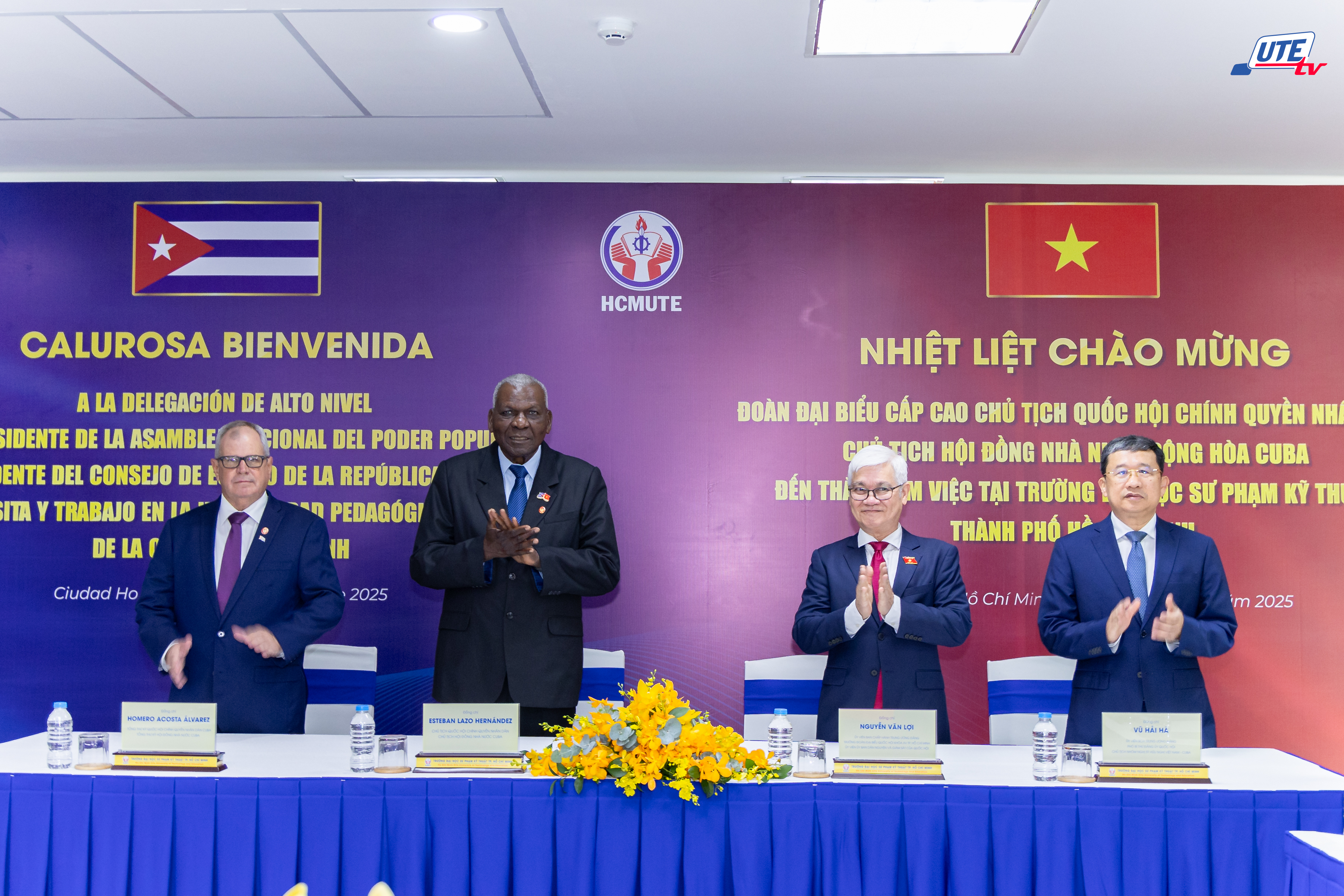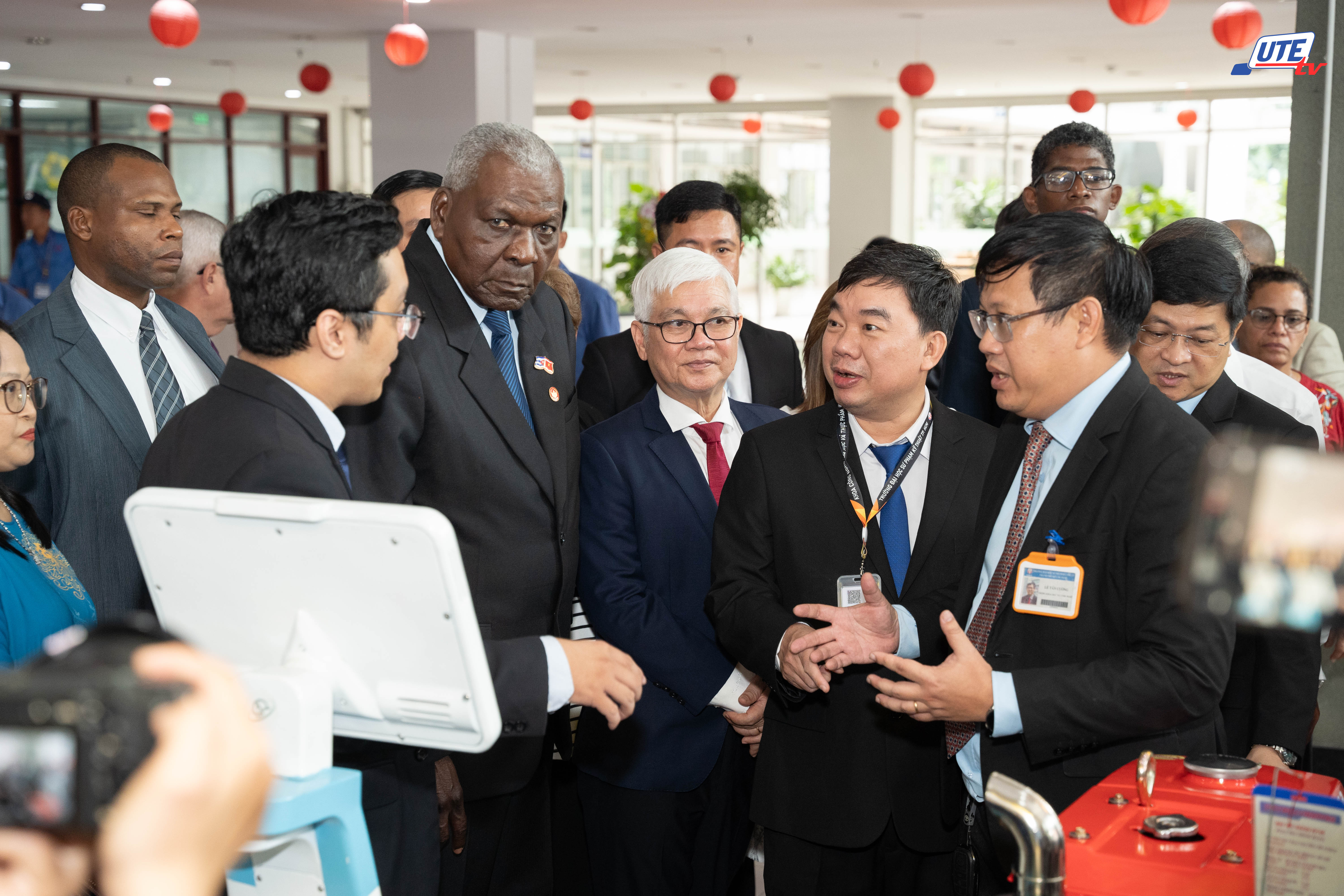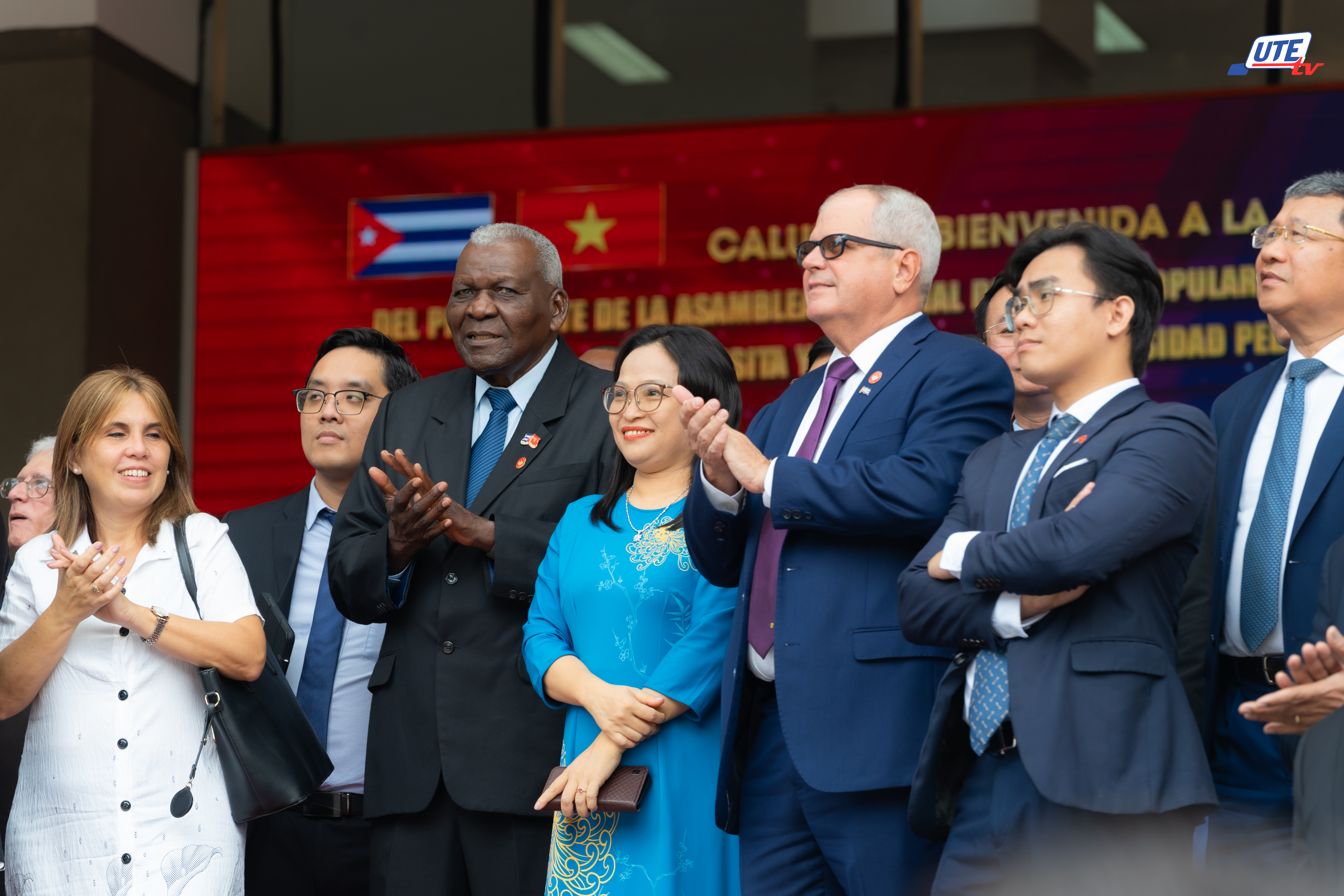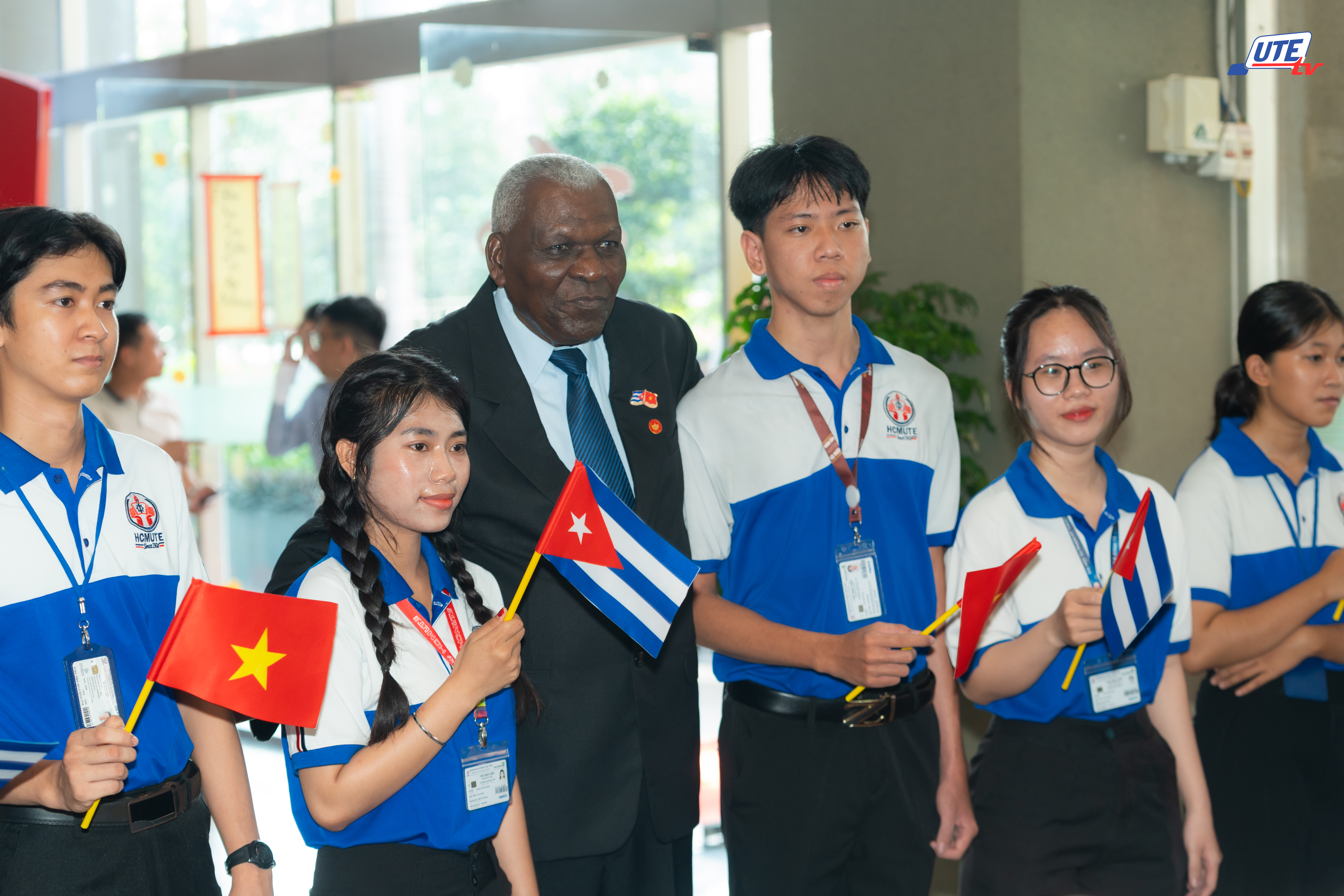As part of his official visit to Vietnam and his co-chairmanship of the second session of the Vietnam–Cuba Inter-Parliamentary Cooperation Committee, on the morning of 3 October, 2025, Mr. Esteban Lazo Hernández – President of the National Assembly of People’s Power and President of the Council of State of the Republic of Cuba – led a high-ranking delegation to visit and work with the Ho Chi Minh City University of Technology and Education (HCMUTE).

The Cuban delegation included Mr. Esteban Lazo Hernández, President of the National Assembly of People’s Power and President of the Council of State of Cuba; Mr. Homero Acosta Álvarez, Secretary of the National Assembly of People’s Power and Secretary of the Council of State of Cuba; and Mr. Rogelio Polanco Fuentes, Ambassador Extraordinary and Plenipotentiary of the Republic of Cuba to Vietnam, along with other distinguished members of the delegation.
Representing the Socialist Republic of Vietnam were Mr. Nguyễn Văn Lợi, Member of the Party Central Committee, Head of the 15th National Assembly Delegation of Ho Chi Minh City, and Member of the National Assembly’s Committee for People’s Petitions and Supervision; Mr. Vũ Hải Hà, Member of the Party Central Committee, Deputy Secretary of the Party Committee of the National Assembly, and Chairman of the Vietnam–Cuba Friendship Parliamentary Group; together with representatives from the Ministry of Foreign Affairs and the Ho Chi Minh City Department of External Relations.
From HCMUTE, attendees included Dr. Trương Thị Hiền, Secretary of the Party Committee and Chairwoman of the University Council; Assoc. Prof. Dr. Lê Hiếu Giang, Deputy Secretary of the Party Committee and Rector; along with key university leaders, faculty members, and students.
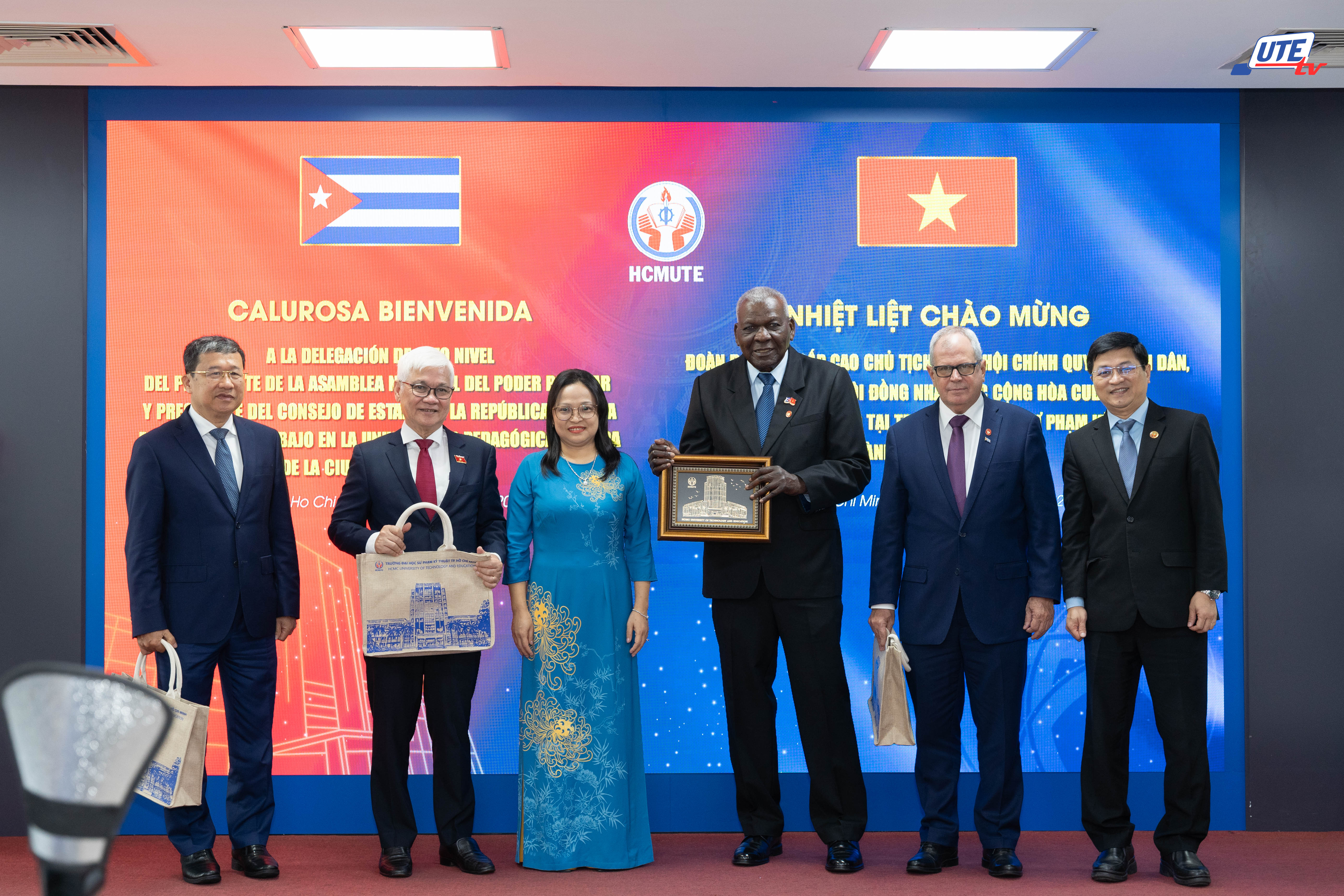
In his welcoming remarks, Mr. Nguyễn Văn Lợi expressed his hope that through this meaningful exchange, HCMUTE students would gain a deeper understanding of the pure and enduring international solidarity between Vietnam and Cuba. He emphasized that such connections should inspire students to pursue knowledge, innovation, and creativity in contributing to national development and the everlasting friendship between the two peoples.
Mr. Nguyễn Văn Lợi also warmly welcomed the participation of AgriFood Company – a business founded by HCMUTE alumni – which is currently exploring investment and cooperation opportunities in Cuba in the fields of agriculture and food technology. He noted that this is a vivid example of practical collaboration, where the knowledge and dedication of Vietnam’s young generation directly contribute to Cuba’s development.
He further praised the university’s research and development of agricultural drones for fertilizer spraying, acknowledging them as a symbol of technological innovation and the creative spirit of Vietnam’s young intellectuals. He expressed confidence that such practical models could pave the way for future cooperation in research and technology transfer in smart agriculture, bringing tangible benefits to the people of both nations.
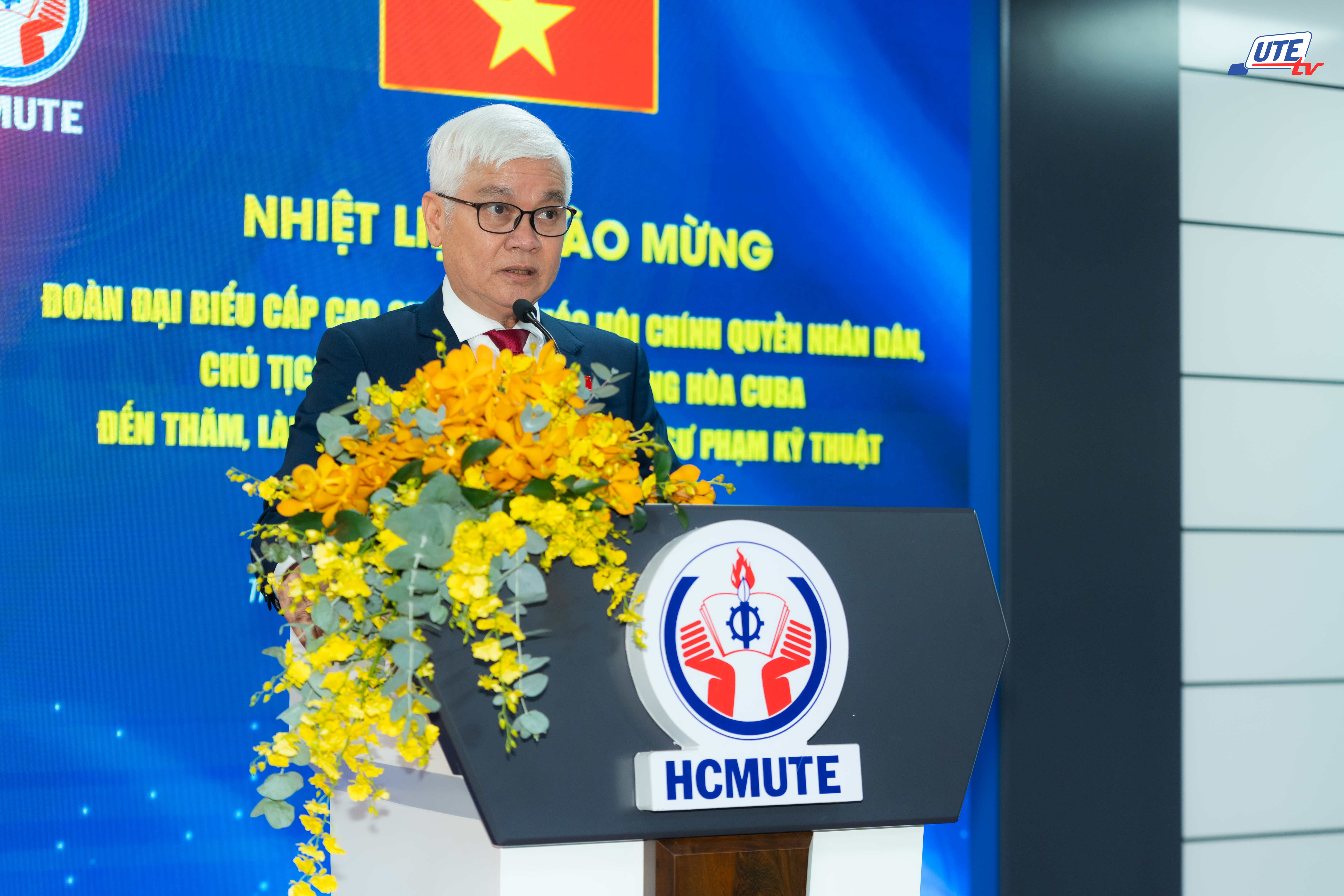
Speaking at the event, Mr. Homero Acosta Álvarez shared that President Esteban Lazo Hernández had earlier participated in a meaningful exchange with HCMUTE students, which deepened the Cuban delegation’s appreciation of Vietnam’s heroic history and the profound friendship between the two countries. He reaffirmed that the special Vietnam–Cuba relationship remains a symbol of pure international solidarity, recalling the words of Cuban leader Fidel Castro: “For Vietnam, Cuba is willing to shed its own blood.” Witnessing Vietnam’s great achievements today, he said, brings Cuba joy as if they were its own successes.
Mr. Homero Acosta Álvarez expressed heartfelt gratitude to HCMUTE for the warm welcome and thoughtful arrangements, noting that the university stands as a vivid testament to Vietnam’s innovation and progress, as well as a cradle for nurturing future generations of national leaders and professionals.
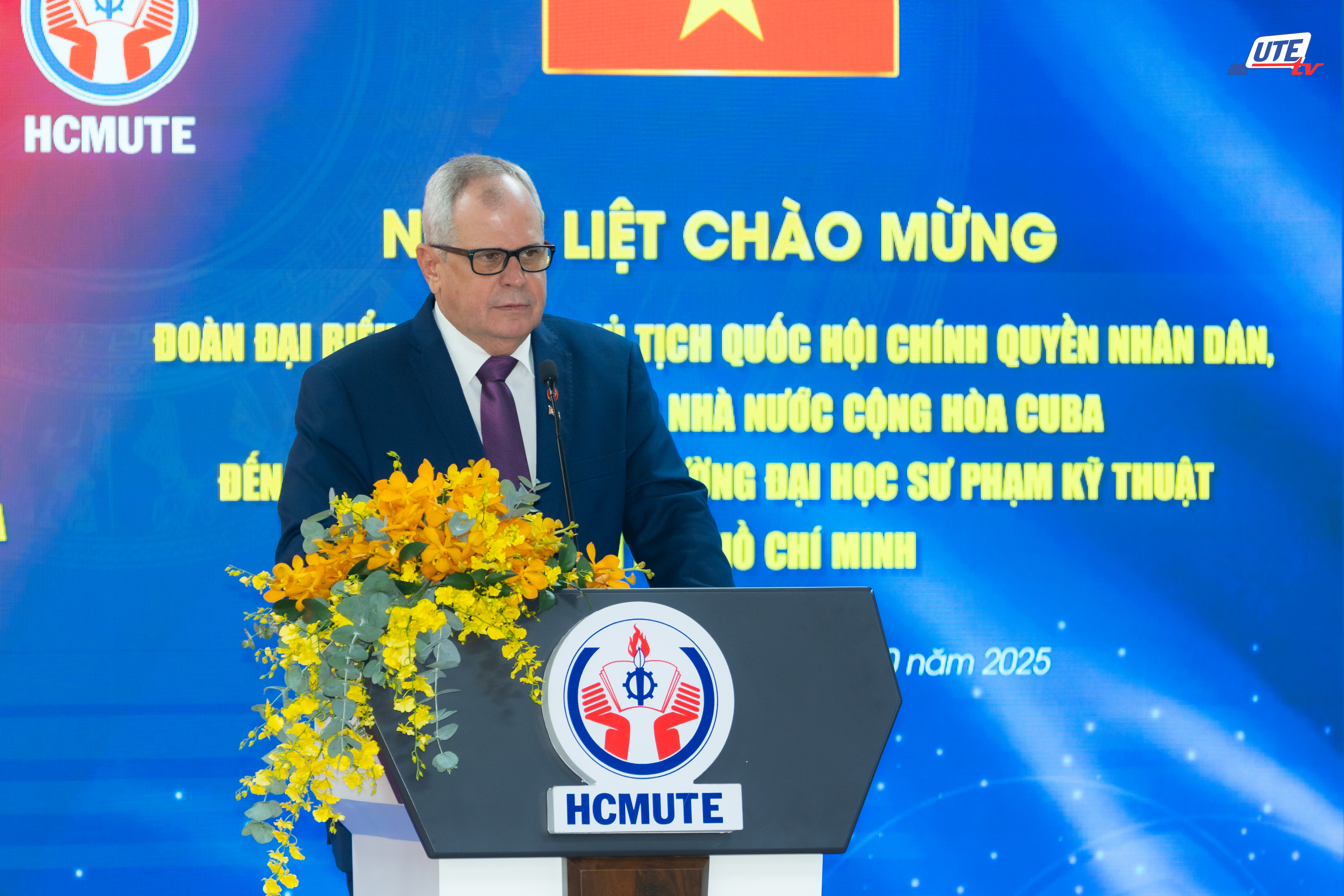
In her remarks, Dr. Trương Thị Hiền expressed HCMUTE’s strong commitment to:
- Establish and promote bilateral training cooperation programs, including joint undergraduate and postgraduate education in fields of mutual interest;
- Organize student, faculty, and researcher exchange programs; implementing exchange semesters, research internships, and short-term academic courses;
- Co-develop research projects and technology transfer initiatives in renewable energy, hydrogen, telecommunications, food technology, smart agriculture, and industrial digitalization;
- Build shared academic forums, international conferences, and startup incubation programs for young innovators of both nations.
Dr. Hiền also expressed hope for collaboration with Cuban universities, research institutes, and experts in developing HCMUTE’s medical engineering programs. She noted that Cuba’s strong expertise in healthcare, pharmaceuticals, and biotechnology makes it a valuable partner for future cooperation. With 65 years of steadfast friendship and a shared vision for mutual growth, HCMUTE believes that its partnership with Cuban educational and research institutions will continue to strengthen in depth, practicality, and effectiveness.
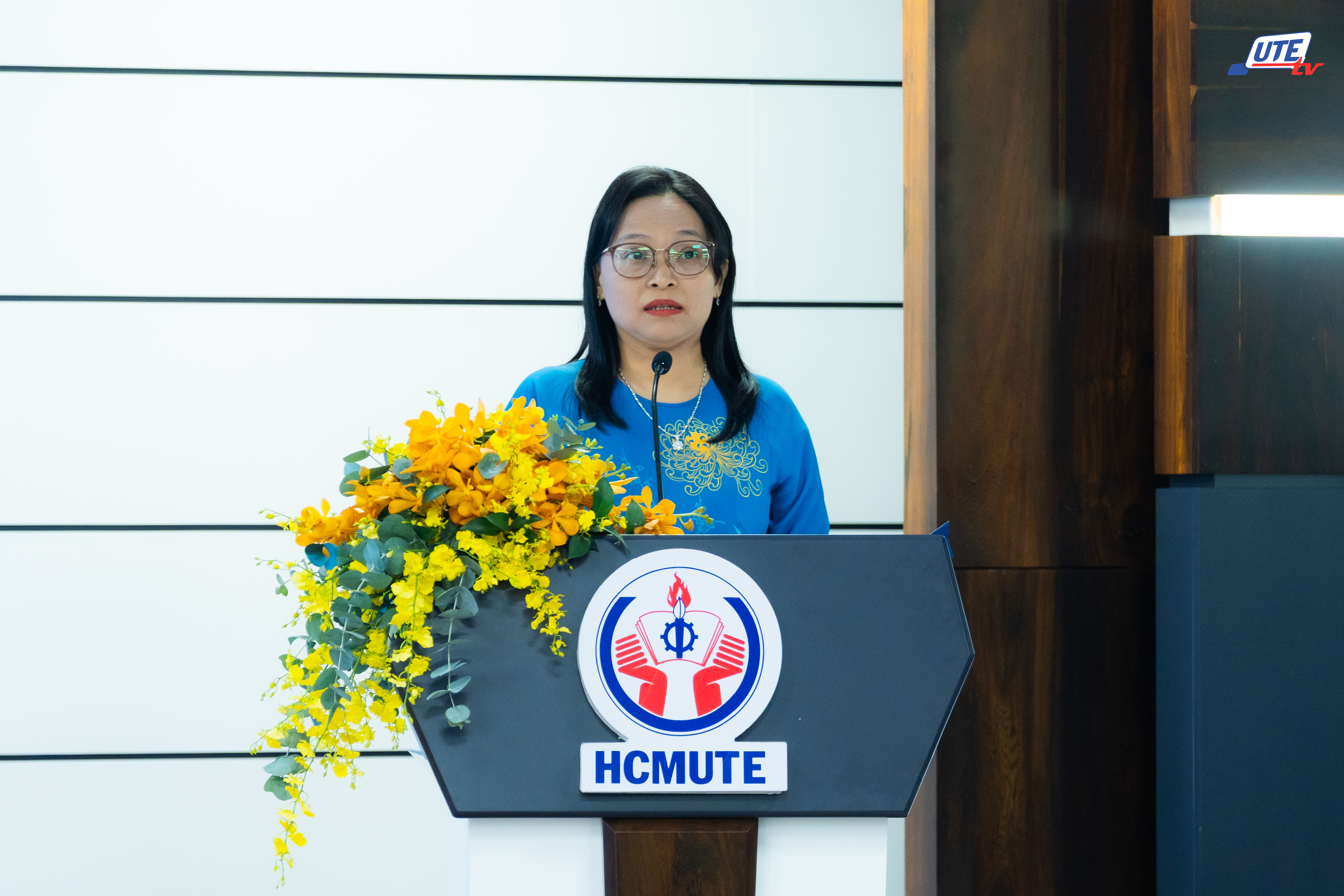
Looking ahead, HCMUTE aims to leverage its strong ties with the business community—particularly enterprises led by its alumni—to foster meaningful collaborations supporting Cuba’s development. These initiatives not only demonstrate the university’s sense of social responsibility but also create opportunities for cultural exchange, knowledge sharing, and the building of sustainable value for both sides.
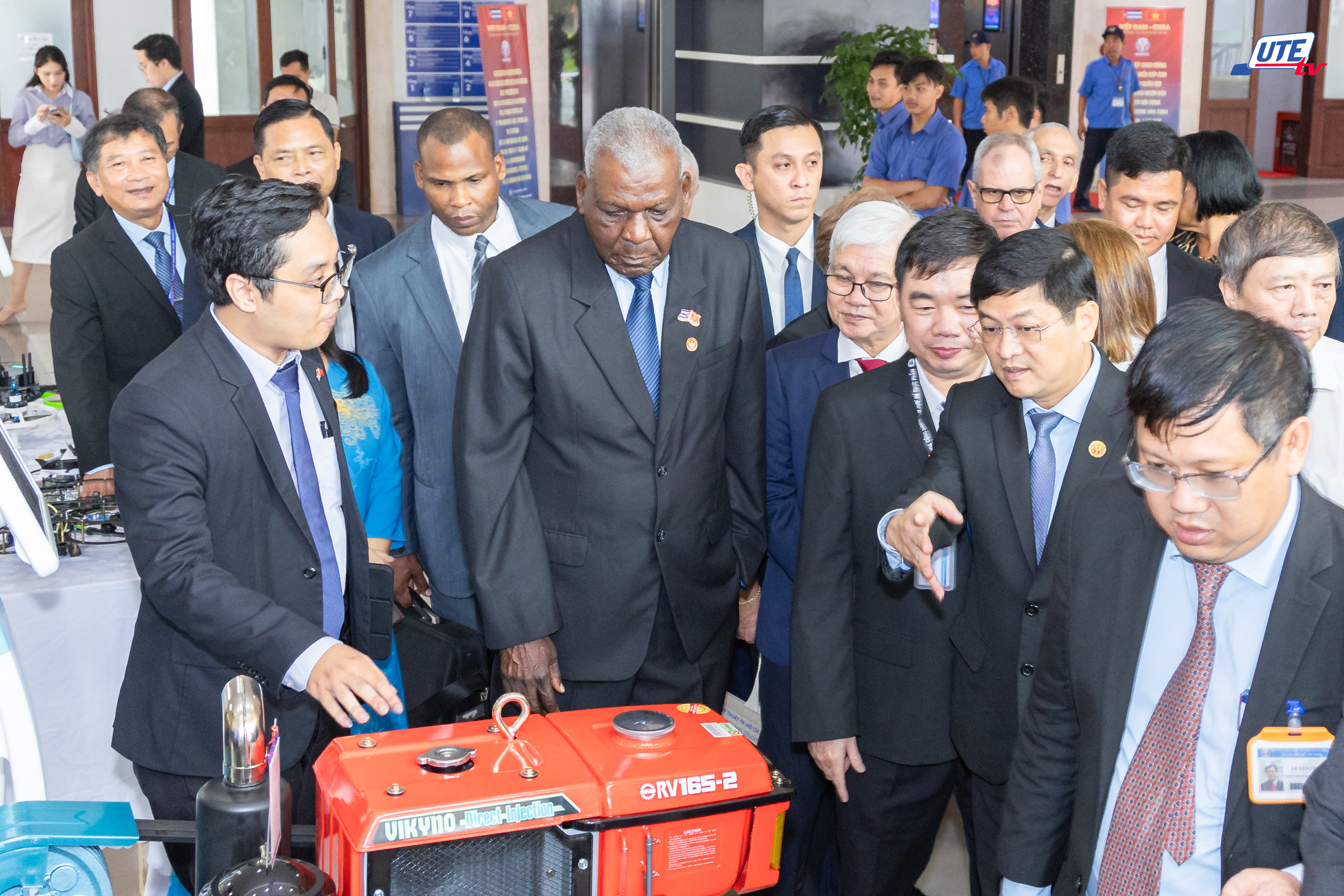
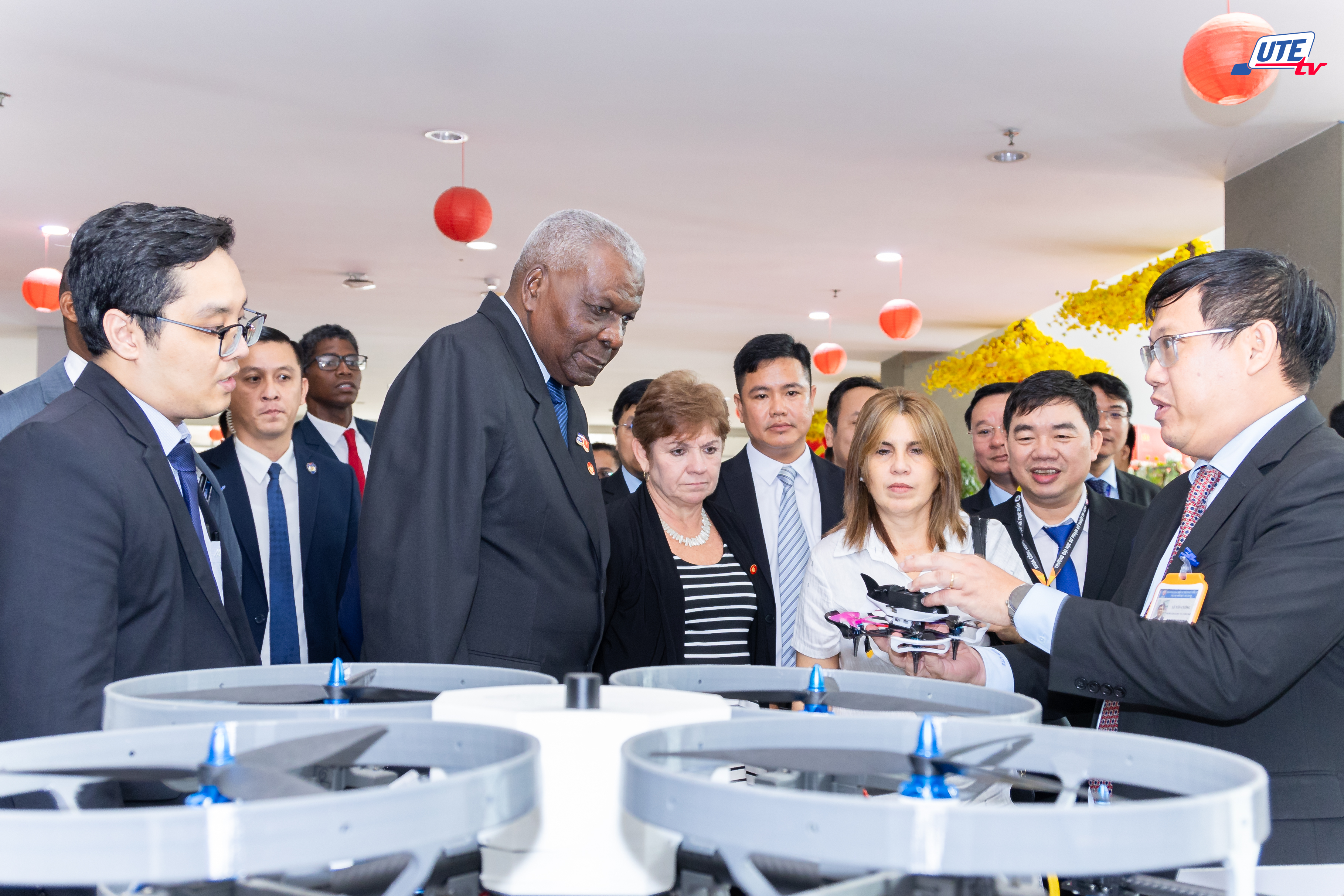
The visit of Mr. Esteban Lazo Hernández, President of the National Assembly of People’s Power and President of the Council of State of the Republic of Cuba, and the high-ranking Cuban delegation to HCMUTE was not only a politically and diplomatically significant event, but also a promising step toward concrete cooperation in education, research, and technology transfer. It marked an important milestone that further deepens a tradition of friendship and comprehensive cooperation between Vietnam and Cuba—affirming HCMUTE’s pioneering role in connecting knowledge, nurturing the next generation, and advancing sustainable development of both nations.
